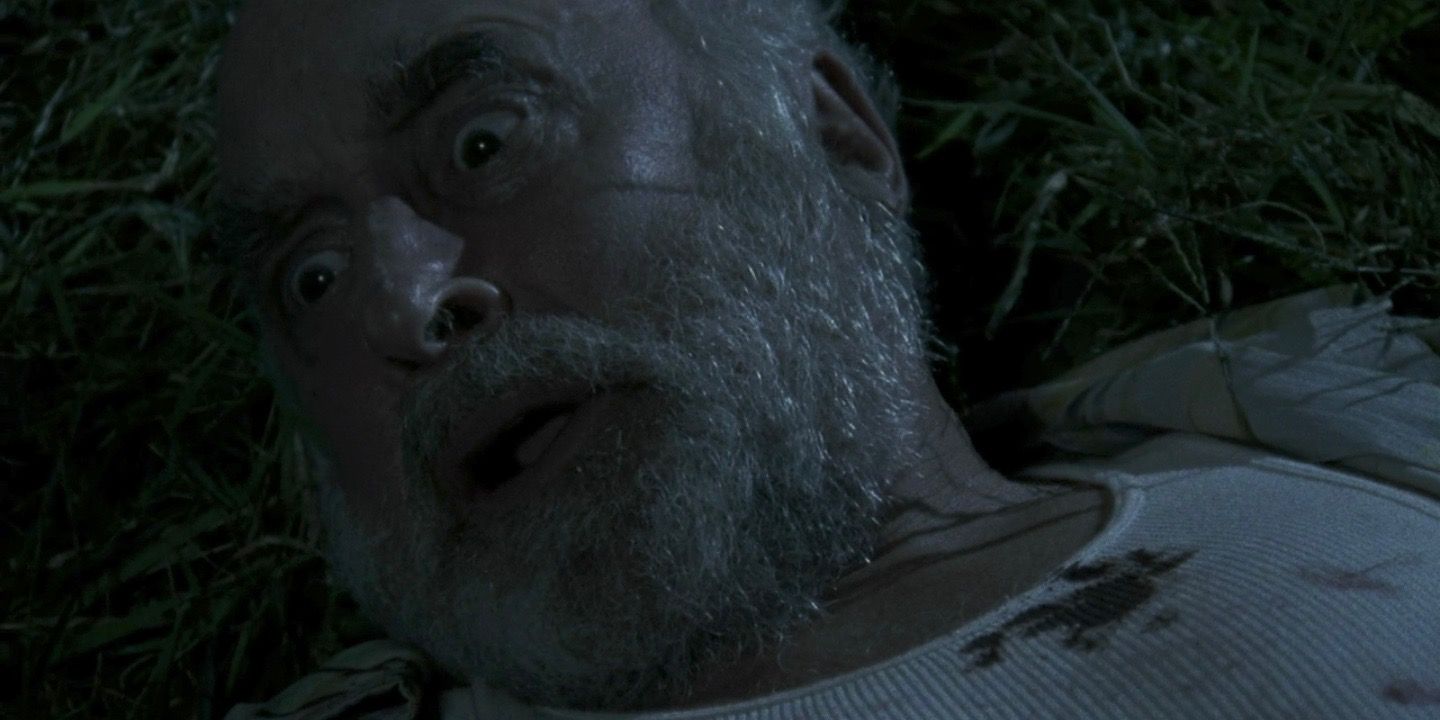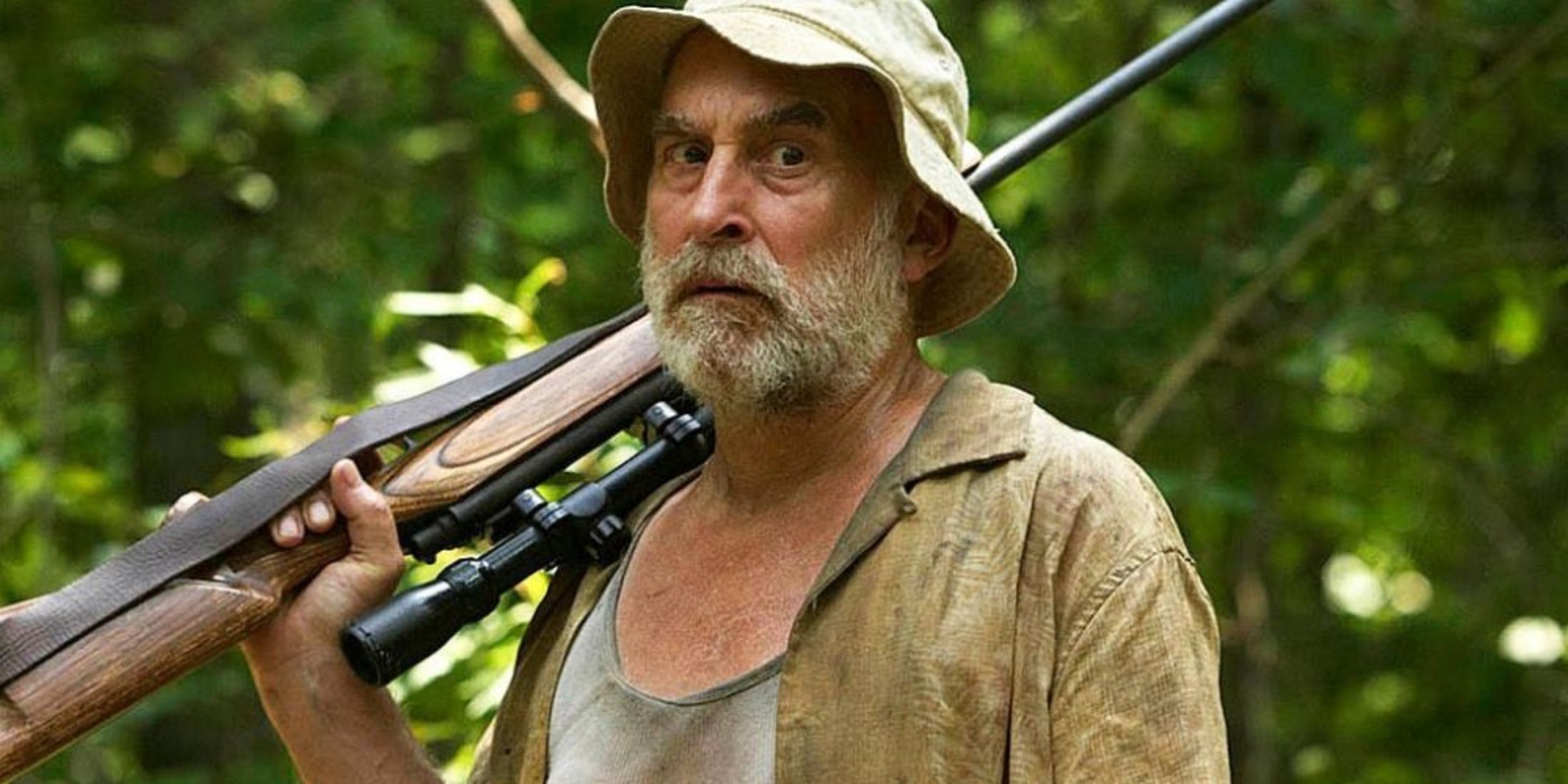Among the most iconic deaths in The Walking Dead series, Dale's death stands as a pivotal moment that shook the fanbase and highlighted the brutal reality of the post-apocalyptic world. This article delves into the significance of Dale's death, its impact on the storyline, and the broader implications within the show. If you're a fan of The Walking Dead, understanding Dale's death is crucial to appreciating the depth and complexity of the series.
Dale Horvath, portrayed by Jeffrey DeMunn, was one of the earliest and most beloved characters in The Walking Dead. As a father figure to the group, his death marked a turning point in the series, forcing the survivors to confront the harsh realities of their world. His demise not only affected the characters emotionally but also served as a narrative device to propel the story forward.
Through this article, we will explore the events surrounding Dale's death, the emotional reactions of the characters, and its long-term effects on the group. Additionally, we will analyze the significance of Dale's death in the context of the broader themes of survival, morality, and humanity in The Walking Dead.
Read also:50 Cent Story The Inspirational Journey Of Curtis James Jackson Iii
Table of Contents
- Dale's Biography
- Events Leading to Dale's Death
- The Death Scene: A Detailed Analysis
- Emotional Impact on the Characters
- Symbolic Meaning of Dale's Death
- Long-Term Effects on the Group
- Fan Reactions to Dale's Death
- Comparison with The Walking Dead Comics
- Themes Discussed Through Dale's Death
- Conclusion
Dale's Biography
Early Life and Introduction to The Walking Dead
Dale Horvath was introduced in the pilot episode of The Walking Dead, where he quickly established himself as a moral compass for the group. Before the apocalypse, Dale was a retired RV salesman who had a passion for firearms and a knack for offering sage advice. His calm demeanor and wisdom made him a trusted member of the group, often acting as a mediator during conflicts.
Biodata and Personal Information
| Full Name | Dale Horvath |
|---|---|
| Age at Death | 61 |
| Occupation | Retired RV Salesman |
| Family | Deceased wife and daughter |
| Portrayed by | Jeffrey DeMunn |
Events Leading to Dale's Death
Dale's death occurred in Season 2, Episode 12, titled "Beside the Dying Fire." The events leading up to his demise were fraught with tension and betrayal. Shane's growing instability and his conflict with Rick over leadership created a volatile atmosphere within the group. This tension culminated in Shane's decision to eliminate Dale, whom he perceived as a threat due to his knowledge of Shane's role in Otis's death.
Shane's Motivation
- Shane believed that Dale's revelation about Otis's death could destabilize the group.
- His paranoia and desperation drove him to take drastic measures.
- The weight of his guilt over killing Otis and his affair with Lori added to his psychological turmoil.
The Death Scene: A Detailed Analysis
The scene of Dale's death is one of the most memorable in The Walking Dead. As Dale sat peacefully in his RV, Shane approached him with the intention of killing him. However, before Shane could act, a herd of walkers arrived, leading to Dale's tragic death. The scene was expertly crafted to evoke a sense of helplessness and inevitability.
Key Moments in the Scene
- Dale's calm acceptance of his fate, symbolizing his resignation to the harsh realities of the world.
- The juxtaposition of Shane's guilt and Dale's serenity, highlighting the moral complexity of the characters.
- The sudden arrival of the walkers, emphasizing the unpredictability of life in the apocalypse.
Emotional Impact on the Characters
Dale's death left a profound impact on the survivors, particularly Rick and Shane. For Rick, Dale's death was a reminder of the fragility of life and the importance of protecting his family. Shane, on the other hand, was consumed by guilt and regret, leading to his eventual downfall.
Reactions from Key Characters
- Rick: Grieved deeply but resolved to lead the group with greater determination.
- Shane: Struggled with guilt and eventually spiraled out of control.
- Lori: Felt a pang of loss but was more focused on protecting her unborn child.
Symbolic Meaning of Dale's Death
Dale's death symbolizes the loss of innocence and the erosion of morality in the face of survival. His character represented the ideals of humanity—compassion, wisdom, and integrity—that were increasingly threatened by the brutal realities of the apocalypse. His demise serves as a poignant reminder of the sacrifices made in the name of survival.
Themes Represented Through Dale's Death
- The fragility of human life in extreme circumstances.
- The moral compromises individuals make to survive.
- The importance of maintaining one's humanity amidst chaos.
Long-Term Effects on the Group
Dale's death had lasting effects on the group, influencing their decisions and relationships moving forward. The loss of a beloved member reinforced the need for unity and trust, even as external threats continued to mount. It also served as a catalyst for Rick's transformation into a more decisive leader.
Read also:Gypsy Rose Wheelchair A Comprehensive Guide To Understanding And Empowering Mobility
Impact on Group Dynamics
- Increased solidarity among the survivors.
- Heightened awareness of the dangers posed by internal conflicts.
- Reinforcement of the importance of leadership and decision-making.
Fan Reactions to Dale's Death
Fans of The Walking Dead were devastated by Dale's death, as he was one of the most likable and relatable characters. His death was seen as a betrayal of trust, especially given Shane's involvement. However, many fans also appreciated the depth and complexity added to the storyline through this tragic event.
Common Fan Opinions
- Appreciation for the emotional depth of the scene.
- Outrage over Shane's actions and the lack of justice for Dale.
- Recognition of the importance of Dale's death in advancing the narrative.
Comparison with The Walking Dead Comics
In the comics, Dale's death occurs under different circumstances, highlighting the creative liberties taken by the showrunners. While the comics focus more on Dale's role in the group's dynamics, the show emphasizes the emotional and psychological impact of his death on the characters.
Key Differences Between Show and Comics
- Method of death: In the comics, Dale is killed by a sniper, while in the show, he is attacked by walkers.
- Role in the group: The comics portray Dale as more of a comedic relief, whereas the show emphasizes his wisdom and leadership qualities.
Themes Discussed Through Dale's Death
Dale's death encapsulates several themes central to The Walking Dead, including survival, morality, and the preservation of humanity. These themes are explored through the characters' reactions and the narrative choices made by the creators.
Exploring the Themes
- Survival: The harsh realities of life in the apocalypse and the sacrifices required to endure.
- Morality: The ethical dilemmas faced by the characters and the compromises they make to survive.
- Humanity: The struggle to maintain one's integrity and compassion in a world devoid of order.
Conclusion
Dale's death in The Walking Dead is a defining moment in the series, highlighting the brutal realities of the post-apocalyptic world and the moral complexities faced by the characters. Through his demise, the show explores themes of survival, morality, and humanity, resonating deeply with its audience. As fans reflect on Dale's death, they are reminded of the importance of preserving one's humanity in the face of adversity.
We invite you to share your thoughts and reactions to Dale's death in the comments below. Additionally, explore other articles on our site to delve deeper into the world of The Walking Dead and its rich narrative tapestry.



